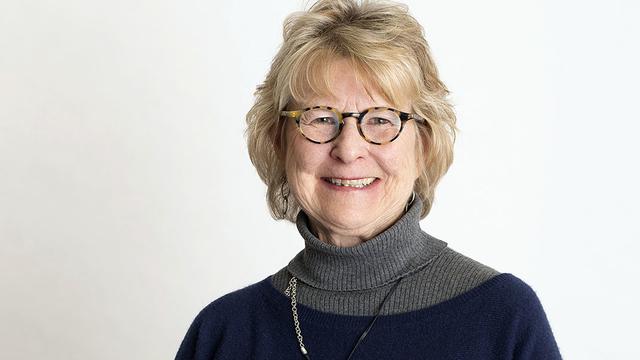By J. Trout Lowen
Three longtime faculty members at the Humphrey School of Public Affairs are retiring in 2020: Professors Melissa Stone, Robert Kudrle, and John Bryson.
Each has dedicated decades to the School, from its fledgling days as the School of Public Affairs when it was part of the College of Liberal Arts, through the birth of the Humphrey Institute in 1978, to its renaming as the Humphrey School of Public Affairs in 2011.
Each has shaped the thinking and careers of thousands of University of Minnesota students, many of whom are now shaping the world we live in and the one we will leave behind.
Individually and collectively their scholarship has advanced and broadened the field of public affairs. Their careers have been both reflective of and instrumental to the growth and development of the Humphrey School.
Here is a look at the career of Melissa Stone, who is retiring this month.
---
Professor Stone has been at the Humphrey School for more than 20 years, serving in a variety of important roles including Gross Family Professor of Nonprofit Management, former director of the Public and Nonprofit Leadership Center, and director of graduate studies for the Nonprofit Management Certificate Program.
Twenty-three years ago, Minnesota wasn’t really on Stone’s radar. She had grown up on the East Coast, and earned her undergraduate degree from the University of Pennsylvania and her master’s degree and doctorate from Yale. Her first teaching appointment was at Boston University School of Management.
Although she spent seven years in Boston, Stone says, the management school was not a good fit. Her interest in governance and strategic management of nonprofits was outside the typical curriculum of a business school.
Nonprofit management matters
So when John Bryson told her the Humphrey School was looking to expand its offerings in those areas, she took the leap and applied for a job. But when she arrived in Minnesota, she says, she found she was still a bit of a square peg in a round hole.
“In the business school, I didn’t have to convince anybody that management mattered, because it was a business school. I had to convince them that nonprofits mattered,” she recalls. “Here, I didn’t have convince other faculty that nonprofits mattered … but continually, I had to persuade other people that management, in addition to policy analysis, mattered. That managing these organizations that were implementing public policy is really important.”
Over time, however, the Humphrey School has expanded its curriculum to include coursework on nongovernmental organizations, civil society organizations, and large international organizations including the United Nations and the World Bank. The complexities of running such entities still fascinate her.
“Then you are in a world that often stretches traditional theories used to understand organizations and policy,” she says. “And I love that. That’s just yummy to me.”
Stone’s own research interests have expanded as well over the years, she says, pointing to her work with Professor John Bryson and Associate Professor Emerita Barbara Crosby on cross-sector collaborations, and her current work with Carrie Oelberger, Humphrey School assistant professor of nonprofit management, exploring the changing role nonprofits and civil society organizations are playing in democracies around the world.
For example, there are countries where government is so corrupt people look at civil society organizations as being far more legitimate than government, Stone notes. In other countries, the rise of advocacy organizations over the last decade has put pressure on governments to address issues such as climate change.
While the opportunities for research have been rich, Stone says, teaching and the Humphrey students themselves have also kept her energized throughout her career at the School.
Ongoing commitment to students in the classroom
“I have loved the students from, literally, the time I set foot in the Humphrey School when I came for interviews,” she says. “They were mouthy, they were bold, they wanted to prod and probe and find out who I was and what I was doing.”
Stone’s commitment to the classroom and her students has not gone unnoticed. She received the School’s Best Teacher in a Core Course Award four times between 1997 and 2011, and she was named its teacher of the year for 2016–2017. At the University level, she received the 2007–2008 Award for Outstanding Contributions to Postbaccalaureate, Graduate, and Professional Education.
Students sing her praises. “Melissa had this remarkable way of making every person in her class feel seen and heard,” Sophie Pilhöfer, then one of Stone’s graduate assistants and now an evaluation specialist at Minneapolis Public Schools, wrote in an email. “Student after student expressed their appreciation and admiration of her for this very reason. When you were in Melissa’s class, you mattered.”
The admiration was mutual, Stone says. She loved the interaction and the community created in the classroom. “I love teaching with the students. And it’s really with them,” she adds. “Honestly, I’ve learned a lot from them, and I think that’s what’s kept me here.”
J. Trout Lowen is a Minneapolis freelance writer and editor.


